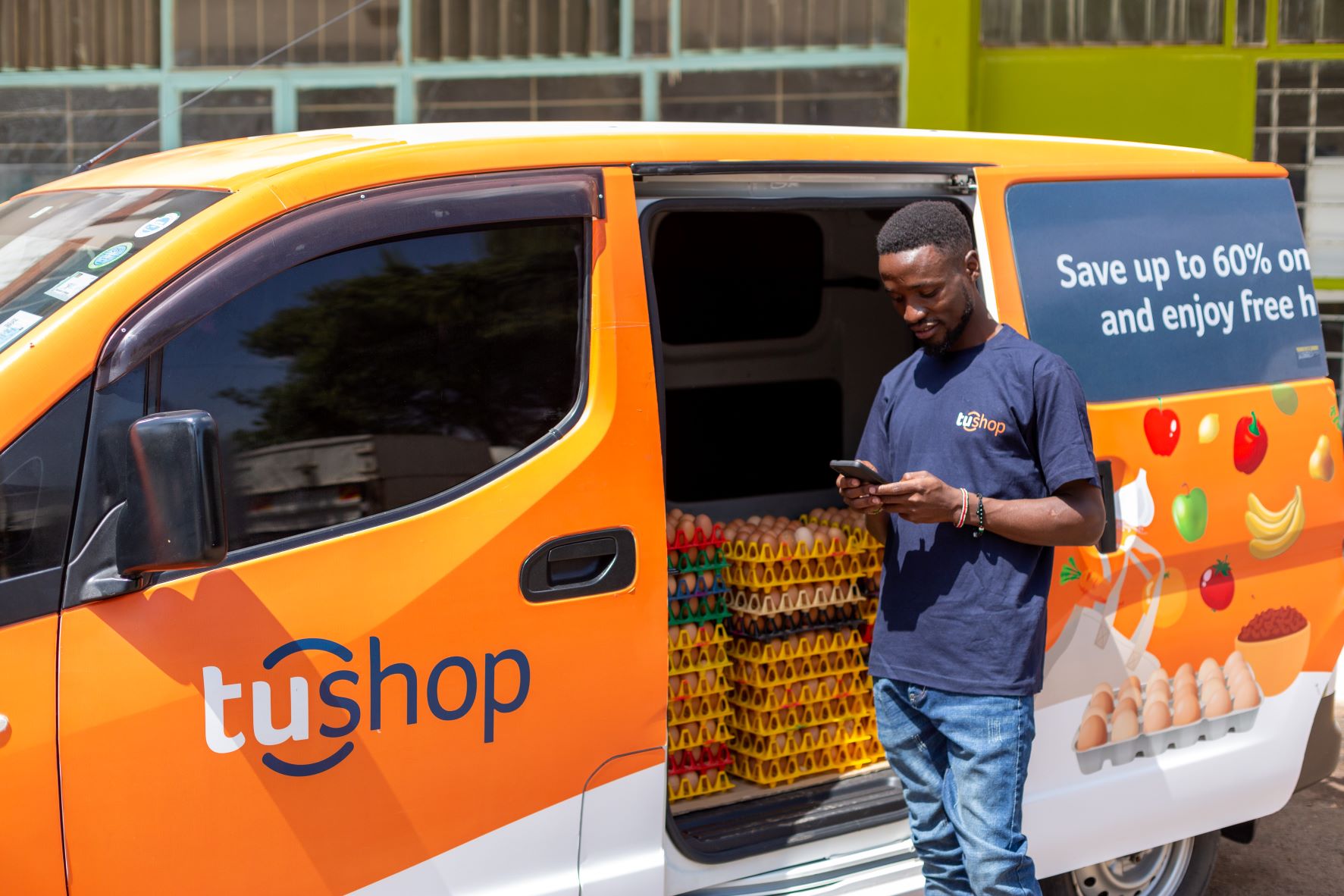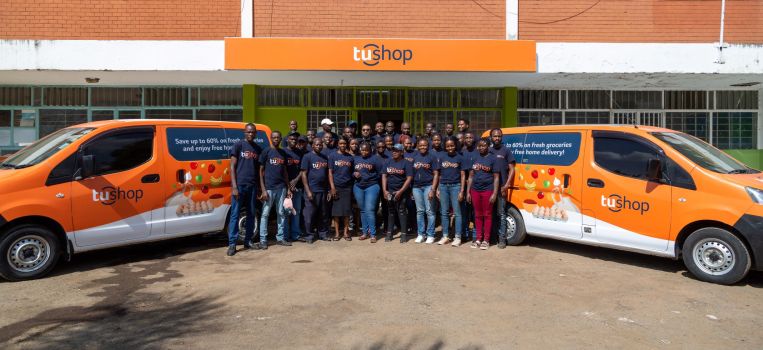Tushop, a social-commerce platform in Kenya that enables the group-buying of fast-moving consumer goods (FMCGs), is set for expansion across Nairobi after raising $3 million in pre-seed funding in a round led by 4DX Ventures.
Founded last year by Cathy Chepkemboi, also the CEO, Tushop uses community-leaders, who collect orders from their neighbors and also support last-mile deliveries.
Each community leader has a virtual shop where the neighbors place their orders, which Tushop aggregates for bulk orders to manufacturers or other producers – like farmers. Chepkemboi says this arrangement earns shoppers up to 60% in savings, even with the agents earning sales commissions.
The startup plans to grow its business in Kenya’s capital, Nairobi, before expanding to the rest of the country.
“We are going to scale across Nairobi, and because it is an operationally intensive business, we [immediately] need more warehouses and delivery trucks. We are hiring and also improving our technology and our agents’ channels to make the experience even better,” Chepkemboi told TechCrunch.
The startup’s latest round had the participation of JAM Fund, Breyer Capital, Chandaria Capital, TO Ventures, Golden Palm Investments, FirstCheck Africa, and DFS Lab. Wasoko (formerly Sokowatch) also joined to make their first strategic institutional investment. A number of angel investors including Olugbenga Agboola (GB); Flutterwave CEO, Raja Kaul; Sundial Group president, Eli Pollak; Apollo Agriculture CEO, and Ida Mannoh; Chipper Cash directo of growth, also took part in the round.
“We think that the market opportunity for Tushop is incredibly large, and that Cathy is the right founder to go after it given her deep understanding of the market, and impressive execution and growth thus far. We’re thrilled to join such a strong team of other investors and advisors to help Tushop become the dominant player in group-buying across Africa,” said 4DX Ventures, managing partner Peter Orth.

Tupshop is powering group-buying in Kenya. Image credits: Tushop
Experience in the FMCG industry
Chepkemboi launched Tushop following her departure from Unilever [Kenya and UK], and Moko, a furniture startup in Kenya. She says that it was during her stint with Unilever – Kenya that she recognized the fragmentation in Kenya’s retail sector, adding that logistics was one of the challenges that led to the high cost of essential goods in the country. In Kenya, distributors sourcing from manufacturers generally define the price of goods, which is, however, often inflated by the distributors and retailers.
“I was in the field distributing products and could see what happens on the ground…I could also immediately tell that if we were in direct contact with the customer, the cost would be lower and we could do more targeted promotions or marketing. This led to what we are doing now, sourcing from manufacturers and selling directly to consumers,” said Chepkemboi, who studied international relations at the University of Pennsylvania.
“We provide predictive delivery of affordable high-quality goods including fresh produce. And the way we’re able to do this is by working with community leaders, who gather orders from the neighbors and manage last mile delivery. Our value proposition here is to provide our customers a way to shop more cheaply and conveniently. We are cheaper than retail,” she said.
Tushop joins the growing list of startups that are digitizing the retail sector in Kenya. They include Marketforce, whose RejaReja app makes it possible for informal merchants to order and pay for inventory digitally. Wasoko, also in the same space as RejaReja, operates by distributing FMCG from suppliers to retailers. The difference between the two is that RejaReja, unlike Wasoko, is an asset-light distribution platform- it does not own capital assets like warehouses and delivery trucks; these are provided by its partners including manufacturers and distributors. Tushop is one of the first social commerce platforms in Kenyan space directly sourcing goods, including fresh produce, from producers and delivering to shoppers.
